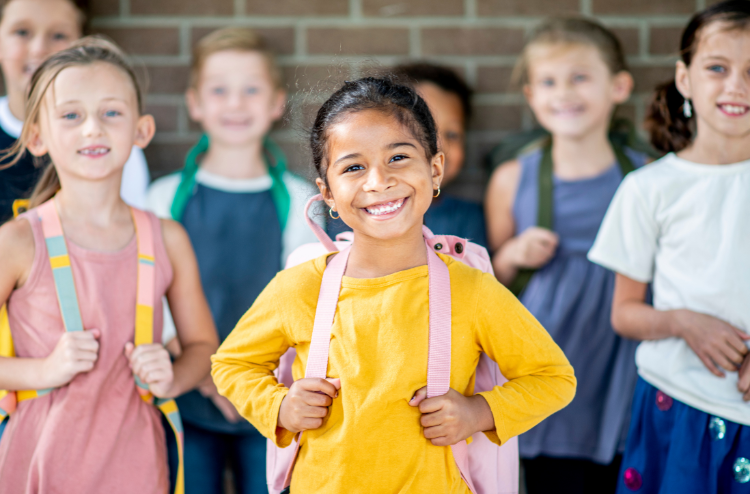Not Just for Catch-Up: Why Enrichment Matters for Every Learner

Key Takeaways
- Enrichment isn’t a remedial patch. It’s a way to deepen curiosity, strengthen thinking, and build confidence.
- All students, from those who need a boost to gifted students, can benefit from enrichment.
- High-quality enrichment goes beyond “more work”—it challenges kids to think more deeply, ask questions, and connect learning to real life.
- Enrichment programs can help prevent boredom, disengagement, and summer learning loss by maintaining momentum.
- Best in Class’s enrichment model is designed to complement what schools teach and to extend each student’s growth.
“Enrichment” is one of those education buzzwords that can feel vague. At its core, enrichment means providing learning opportunities beyond what typical classroom instruction covers. It’s not just more drills or extra homework. Rather, enrichment seeks to broaden, deepen, and accelerate student thinking.
In schools, enrichment often takes shape when students who have mastered standard content are given projects, extension tasks, or differentiated challenges to further their learning and development. It can mean exploring cross-disciplinary themes, working on inquiry-based projects, or applying skills in new contexts.
Outside of school, enrichment programs provide students with the opportunity to explore their interests in greater depth or try something new. They might join small-group classes, one-on-one tutoring, or creative workshops that stretch their thinking and keep learning fun.
Who Can Benefit from Enrichment
There’s a common misconception that enrichment is just for students who are behind and need to catch up. Enrichment is equally, and perhaps especially, powerful for kids who are average or ahead, as well as for homeschoolers and gifted learners who need challenge.
- For gifted or high-achieving learners: Enrichment ensures they stay engaged rather than bored. Programs can offer in-depth explorations, cross-curricular thinking, and tasks that require critical reasoning. Pull-out models, cluster grouping, or extension tasks can give these learners the intellectual challenge they crave.
- For homeschoolers: Enrichment offers structured social, academic, and peer-learning opportunities outside their usual curriculum. It helps connect homeschooled students with collaborative thinking, feedback, and varied teaching styles.
- For students in the middle: Enrichment fosters curiosity, helps surface hidden talents, and prevents them from plateauing when the classroom pace slows.
- For students who are behind or recovering: Enrichment programs can provide scaffolding, differentiated instruction, and gap-filling in a more engaging and less remedial way.
How Enrichment Impacts Students
When enrichment is done thoughtfully, the benefits move beyond academics to cognitive and mindset growth. A quality enrichment program can aid:
- Stronger knowledge retention and transfer. A study at Carnegie Mellon found that experiential enrichment helps children not only retain new information but connect it to broader contexts.
- Better academic performance and mindset. Students in well-structured enrichment programs show improved work habits, persistence, concentration, and problem-solving skills.
- Greater engagement and love of learning. When students can explore topics that interest them, they’re more likely to stay curious and motivated.
- Social and emotional growth. Enrichment often happens in small groups or project teams, building collaboration, communication, and leadership skills.
How Best in Class Education Center Engages Enrichment Learning
At Best in Class, our enrichment philosophy is to provide personalized, quality instruction led by passionate instructors. Our programs:
- Meet students where they are. Through diagnostic assessments, we gain a deeper understanding of a child’s strengths, areas for growth, and learning styles.
- Differentiate tasks so stronger learners are stretched while others get scaffolded support.
- Create extension, not repetition. Students go deeper with core concepts rather than repeating what they already know.
- Foster metacognitive and critical thinking. We encourage students to ask reflective questions, such as “How did I solve this?” or “What might I do differently next time?”
- Align with standards but go beyond them. Our programs supplement what your child is learning in school, providing additional time and practice to solidify key concepts.
- Provide feedback loops. We offer regular check-ins with students and provide updates to parents, ensuring growth is tracked and celebrated.
Let Best in Class Education Center Move Your Child’s Growth Beyond the Classroom
Enrichment isn’t just a key to helping kids improve their grades but also stronger minds. When students get opportunities to question, explore, and create, they find their strengths and become more of who they’re meant to be.
Best in Class Education Center’s programs are designed to spark a genuine love of learning. We believe that every child, regardless of their starting point, deserves the opportunity to grow, gain confidence, and thrive. Contact us today to learn how enrichment can help your child stay motivated, build new skills, and find joy in every step of their educational journey.
FAQs About Enrichment and Whom It Serves
Will enrichment just overwhelm my child with more work?
No. Good enrichment is not extra busywork. It’s a meaningful extension that engages deeper thinking or creative application. If your child feels overwhelmed, that’s a signal to adjust pacing, not abandon enrichment.
My child is already excelling—does enrichment really help?
Yes. Even for high achievers, enrichment is about engaging in a rich growth experience. It helps maintain momentum, strengthens advanced reasoning, and keeps school interesting.
How do I choose the right enrichment program?
Look for programs that offer:
- Assessments to personalize learning
- Creative, open-ended tasks—not just worksheets
- Opportunities for feedback, reflection, and student choice
- Alignment with school content (so it supports rather than competes)
- Transparent communication with parents

